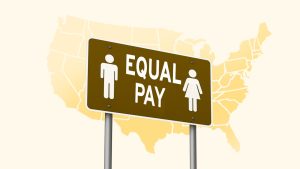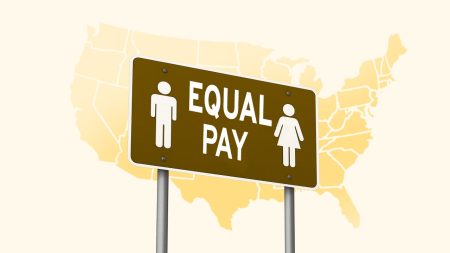Key takeaways
- No-penalty CDs offer fixed rates with the added flexibility to withdraw funds without worrying about the early withdrawal penalties associated with standard CDs.
- No-penalty CDs still come with certain restrictions. You often won’t be able to make additional deposits once you open it, and if you do need to access cash early, you may not be allowed to make a partial withdrawal.
- Some online banks are currently offering no-penalty CDs that can pay approximately 4 percent APY.
If you’re thinking about opening a certificate of deposit (CD) to help boost your earnings on your savings, but the risk of incurring an early withdrawal penalty prevents you from clicking the “open account” button, you’re not alone. After all, no one wants to hand over a chunk of money because they need their funds before the maturity date.
Fortunately, there’s a CD option that lets you withdraw your cash without having to pay an early withdrawal fee. It’s called a no-penalty CD. Here’s what you need to know about this unique deposit account.
What is a no-penalty CD?
Unlike regular CDs, no-penalty CDs allow early withdrawals without incurring a penalty. Depending on your bank’s withdrawal policies, you might be able to withdraw money from a no-penalty CD days after being funded.
But like a regular CD, a no-penalty CD earns interest over a defined period of time, called the term. The term can range from months to years — typically between three months and five years — although some banks and credit unions limit no-penalty CD terms to less than one year. Be sure to read the rules on withdrawals and fees, which should be easily available at your bank or on its website.
No-penalty CDs vs. other savings accounts
No-penalty CDs typically allow you to withdraw your money without paying a penalty starting on the seventh day after you deposit money into this type of CD.
On the other hand, you’ll typically have the option usually be able to withdraw your money at any time from a savings account.
| Type of account | Penalty for withdrawals | Fixed APY |
| No-penalty CD | No | Yes |
| Regular CD | Yes | Yes |
| High-yield savings account | No | No |
Pros and cons of no-penalty CDs
As with all financial products, no-penalty CDs have their pros and cons. Here are some things to take into account:
Pros of a no-penalty CD
- Easy access: The ability to take out money from your CD early without paying a penalty fee is important when you quickly need cash.
- Ability to get higher returns at your discretion: When interest rates rise, a no-penalty CD offers another perk: an opportunity to earn a higher rate by withdrawing your money and putting it in another CD with a higher annual percentage yield (APY).
- Guaranteed rate: Regular CDs usually pay a fixed interest rate that is often higher than what money market accounts and high-yield savings accounts pay, helping you to build your savings faster.
Cons of a no-penalty CD
- Withdrawal restrictions: You may not be able to make partial withdrawals. If you need to take out money early from a no-penalty CD, the bank may make you withdraw all of your cash and close the account.
- Deposit limits: Like a traditional CD, a no-penalty CD usually doesn’t allow additional deposits after the account is opened.
- Lower rates: No-penalty CD rates tend to be lower than traditional CDs with similar term lengths.
How to open a no-penalty CD
A no-penalty CD can be opened the same way you’d open any type of deposit account at a bank.
- Determine how much money you have to save and when you’ll likely need this money.
- Compare no-penalty CD rates and savings rates. Both accounts typically allow you to withdraw your money whenever you’d like, except during the first six days after depositing your funds for no-penalty CDs.
- Fund your no-penalty CD. It could take a few minutes, especially if you already have an account with that bank. But even opening a no-penalty CD at a new bank can be a quick process.
No penalty CDs are ideal for someone who just can’t commit to a longer-term CD. If you need the flexibility to pull that money out sooner, the no-penalty CD can get you in the game without future stress.
— Stephen Kates, CFP® | Bankrate Financial Analyst
Where you can open a no-penalty CD
No-penalty CD often earn a higher interest rate than a savings or a money market account. Although a no-penalty CD has its benefits, it’s not a common product. Few financial institutions offer no-penalty CDs, so it might be tough to find one that suits your needs.
Here are a few banks that offer no-penalty CDs (with APYs as of July 7, 2025).
- Ally Bank: Ally Bank offers an 11-month no-penalty CD that pays 3.40 percent APY with no minimum deposit required to open.
- CIT Bank: CIT Bank offers an 11-month no-penalty CD that pays 3.50 percent APY and has a minimum opening deposit of $1,000.
- Marcus by Goldman Sachs: Marcus offers three no-penalty CD terms, each of which requires a $500 minimum deposit. The APYs on the 7-, 11- and 13-month terms are 4.00 percent, 3.90 percent and 3.90 percent, respectively.
- Synchrony Bank: Synchrony offers an 11-month no-penalty CD that requires no minimum deposit to open, although Synchrony’s offering is a reflection of the tradeoff for the convenience of that “no-penalty” label: It’s currently paying just 0.25 percent APY — far less than the 4.15 percent APY attached to its top-earning traditional CD.
Don’t limit your search to online banks, though. Some local banks and credit unions also offer no-penalty CDs and other CD alternatives that may be even more rewarding that some well-recognized national institutions.
Bankrate insight
Before opening a no-penalty CD, compare rates and use Bankrate’s CD calculator to determine how much interest you’ll earn during your term.
Bottom line
If you’re planning to grow your savings in a fixed-rate deposit account without sacrificing liquidity, a no-penalty CD can be a good choice. Although some no-penalty CDs currently offer APYs as high as 4.00, you might find higher yielding options in high-yield savings accounts.
But keep in mind that APYs for high-yield savings accounts are variable, which means rates can move up or down at any time based on such factors as changes to the federal funds rate. In a no-penalty CD, your APY won’t change during the term of the CD, which can be beneficial should interest rates drop during the CD’s term.
Why we ask for feedback
Your feedback helps us improve our content and services. It takes less than a minute to
complete.
Your responses are anonymous and will only be used for improving our website.
Help us improve our content
Read the full article here












